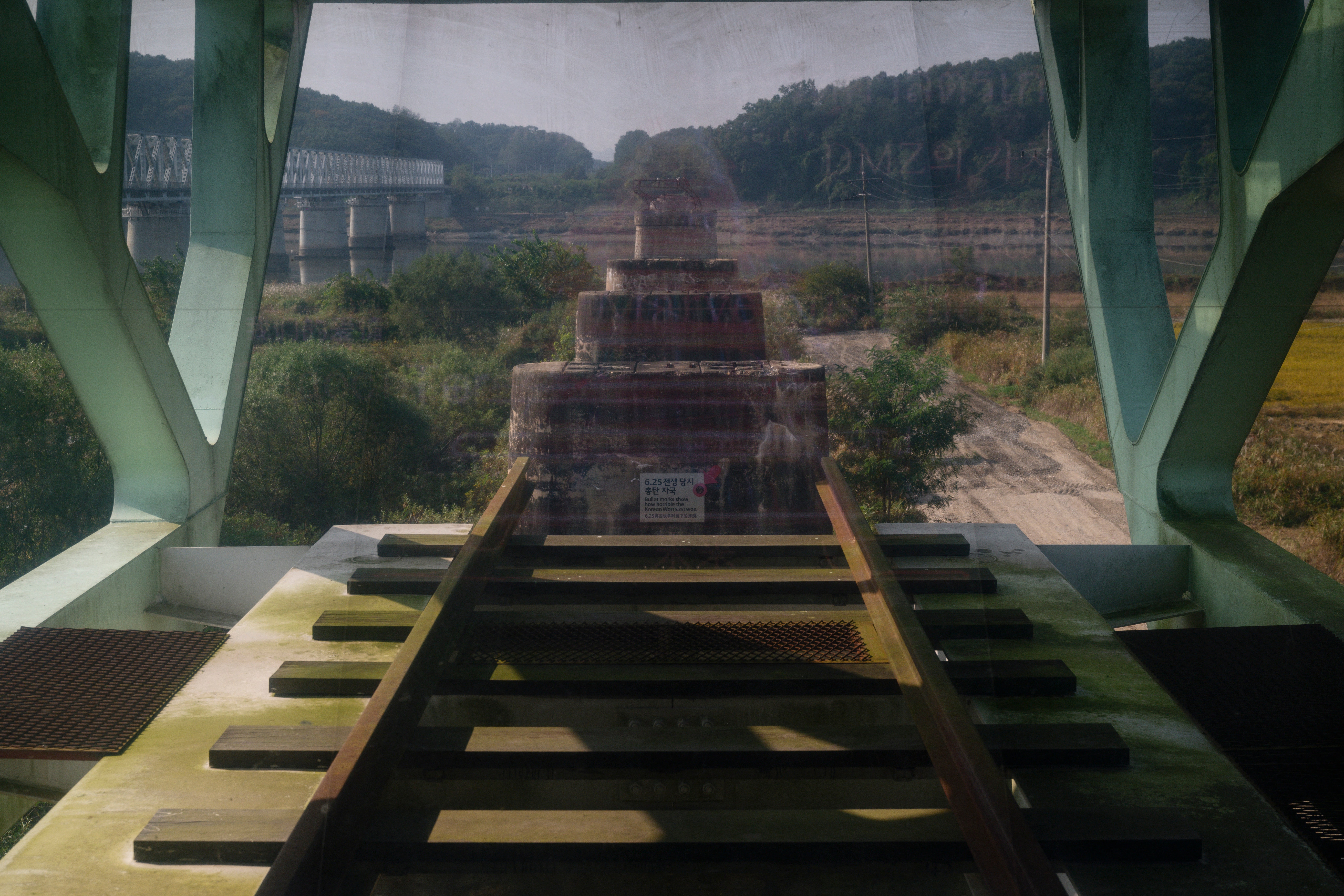North Korea says constitution now defines South as ‘hostile state’ for first time
North Korea hints at more measures, saying legal amendment was part of step-by-step process to separate the two Koreas
North Korea’s constitution now officially defines South Korea as a “hostile state”, marking the first time the regime declared legal changes dictated by Kim Jong-un, according to state media.
The move was highly anticipated as the rubber-stamp parliament met for two days last week to rewrite the constitution, but state media did not confirm if it had legally declared Seoul its enemy. However, Pyongyang blew up the frontline road and rail links that connected both countries.
On Thursday, the official Korean Central News Agency (KCNA) said the demolition was "an inevitable and legitimate measure taken in keeping with the requirement of the DPRK (Democratic People’s Republic of Korea) constitution which clearly defines the ROK (Republic of Korea) as a hostile state”, referring to the official names of the two countries.
It added that the move was "part of the step-by-step implementation to thoroughly separate (the Koreas)".
The move to make a constitution amendment was largely seen as symbolic after Mr Kim said North eliminated the idea of a peaceful unification between the two Koreas and declared South as an “invariable principal enemy”.
North Korea’s defence ministry said they have destroyed up to 60m-long sections of two pairs of roads and railway routes, one pair on the western portion of the inter-Korean border and the other on the eastern side.

The road and rail links were not in use but served as a symbol of now-dormant inter-Korean reconciliation movements.
Mr Kim’s order to make changes in the constitution caught many foreign experts by surprise because it was seen as eliminating the idea of shared statehood between the war-divided Koreas and breaking away with his predecessors’ long-cherished dreams of peacefully achieving a unified Korea on the North’s terms.
"There may still be an internal propaganda review under way about the appropriate way to disclose the constitutional revisions, but this confirmation was expected," Ankit Panda, an expert with the Carnegie Endowment for International Peace, said.
South Korea’s Unification Ministry which oversees ties with North condemned the constitutional reference to South Korea as a hostile state, calling it "an anti-unification, anti-national act".
It said the South Korean government would sternly respond to any provocations by North Korea and unwaveringly push for a peaceful Korean unification based on the basic principle of freedom and democracy.

Tensions have been steadily rising between the two Koreas with the North slowly revoking all the measures, pulling off from treaties to maintain peace at the border and destroying infrastructure that linked it to the South.
Pyongyang has denounced the South for its close ties to the US as well as the military trainings that have seen US warships in close proximity to Korean waters while forging closer ties with Russia.
"North Korea has fallen so far behind the South that any social exchange or financial integration might look like paths to unification by absorption," Leif-Eric Easley, professor of international studies at Ewha Womans University in Seoul, said.
"Pyongyang’s rejection of peaceful Korean unification is thus a strategy for regime survival and maintaining domestic control. This not only bodes ill for diplomacy but could also become an ideology motivating military aggression against Seoul," Prof Easley said.
In recent months, the North reportedly removed street lamps and installed mines on its side of the Gyeongui and Donghae roads. Pyongyang also deployed soldiers to build anti-tank barriers and reinforce barbed wire fences on its side of the demilitarised zone.
In a first, North also accused its rival of flying drones to drop propaganda leaflets near its capital Pyongyang and threatened “war may break out any moment” on the Korean peninsula”.
Join our commenting forum
Join thought-provoking conversations, follow other Independent readers and see their replies
Comments